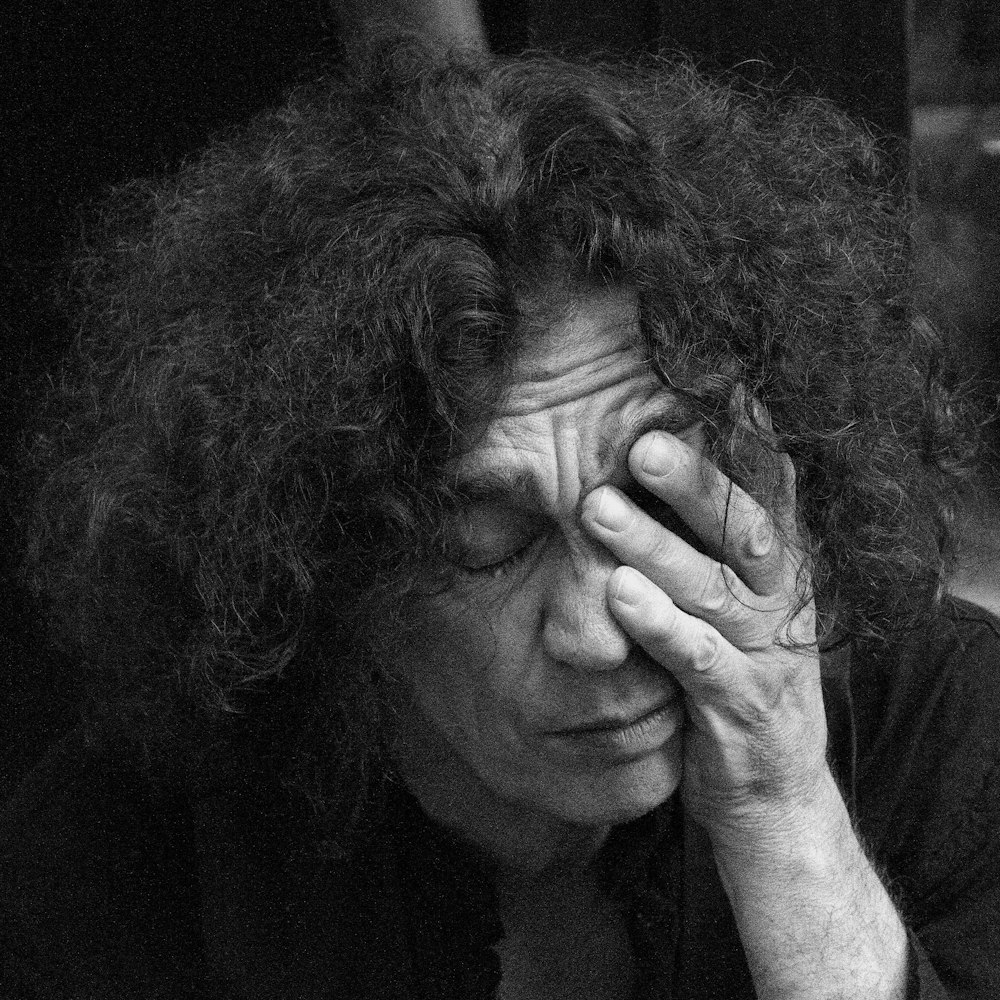How to Fight Fatigue Naturally

Do you feel super sleepy a few hours after you started working? Are you lacking your everyday motivation at work and wait for your lunch break to recharge your batteries? Do you feel constantly tired or demotivated? You’re not alone: fatigue is one of the most common conditions, and we all experience it.
In the modern world, we feel we have to be performant all the time. As a consequence, we tend to push ourselves to our limit – and when we have enough, we end up stressed, tired, or mentally exhausted.
We all have fatigue once in a while: perhaps, recently, you might have felt the need to take a regenerating nap, or you wanted to have a break from everything. But what if this constant sense of tiredness becomes a chronic condition? In such cases, fatigue can become an issue and limit your everyday activities.
What is fatigue?
Fatigue can be defined as a sense of constant tiredness or weakness. It can affect your body, mind, or be a combination of physical and mental exhaustion.
You may feel tired or sleepy at one point of the day, but you often solve it by having a nap or a good night’s sleep. The problems arise when you constantly feel tired and can’t concentrate on your daily tasks – or lack motivation – even if you’re getting regular sleep and have a healthy diet.
In such cases, fatigue is often a symptom of a medical condition or an unbalanced lifestyle. In the first case, there can be many hidden causes behind your feeling of fatigue that need further inquiry (perhaps with a doctor). Otherwise, if you’re living an unbalanced life, fatigue is a signal your body is sending to you: you should take more care of yourself and your well-being.
Why do you have fatigue?
Several causes may trigger fatigue. Here we are going to explore the most common ones.
Sleep-related causes
The first thing you might think whenever you feel tired is that you should sleep more. In fact, lack of sleep is one of the primary causes of fatigue: if you’ve had one (or more) sleepless night, you might feel disconnected and off-track during the day.
There can be many reasons why you’re not having enough sleep:
- Stress. That’s one of the leading causes of lack of sleep. Stress hormones are responsible for insomnia, nighttime awakenings, and difficulties resting. When you’re stressed, you’re more likely to have trouble sleeping, and you feel like you haven’t rested at all at night. That’s why you wake up, and you’re already tired.
- Caffeine abuse. Caffeine acts as a stimulant for your nervous system: having a cup of coffee can help you feel more focused and awake. But there is a flipside – drinking too much coffee, especially in the hours before going to bed, can disrupt sleep.
- Alcohol abuse. While many people think that drinking a couple of glasses of wine at night might promote sleep, this belief is not actually true. You might fall asleep quickly, but you won’t enjoy a restless night. Some hours after ingestion, the alcohol raises the body’s level of epinephrine. This hormone acts as a stimulant, increasing the heart rate: this may result in nighttime awakenings.
- Environmental factors. Your sleep may be disturbed by external factors too. Noisy neighbors, a snoring partner, or little children waking up at night can influence the quality of your nights.
You can prevent lack of sleep by acting on your stress levels and reducing the intake of stimulating substances. It’s a bit trickier to act in other cases, such as a snoring partner or noisy neighbors.
Diet-related causes
Food has a crucial impact on your health. It regulates your energy levels, weight, and metabolism, and an unbalanced diet can trigger several health conditions.
What’s the relation between food and fatigue? Having a poor diet can be one of the leading causes of fatigue, as your body lacks its fuel or the nutrients necessary to its functioning. And what does it mean to have a poor diet? Well, it can happen if you’re having a low intake of calories (when you’re on a diet to lose weight, for example) or lack essential nutrients.
As you might have read already on this blog, your body needs a correct balance of nutrients, and lacking one of those can lead to unpleasant consequences. For instance, a low intake of vitamins and minerals (one of the most common nutrient deficiencies you can have) can cause some fatigue-related symptoms, such as dizziness or tiredness.
Adopting a strict diet for losing weight or cutting off some food from your diet (e.g., vegetarian, vegan, or have some allergies) might stress your organism. Imagine it: eliminating food also cuts off energies from your body, so it’s not a surprise you feel weak and tired. A good solution to tackle this problem is to always talk to a dietician before starting any diet and to do regular blood tests to check your vitamins and minerals levels.
Work-related causes
Work occupies a significant part of our life. We spend most of the day at work, so it’s totally normal to feel tired at one point. Depending on your job and schedule, you may feel fatigued in very different ways. If you’re doing lots of mental tasks, your fatigue can be more mental than physical; quite the opposite if you’re doing a physical job.
Tiredness at work can happen for:
- Burnout. Working too much isn’t good for your health. “Workaholic” people, for example, pour too many efforts into their work, and this leads to an unbalanced life – they neglect their family, friends, or even their health. If you work too much, your body starts sending you signals at one point. Lack of sleep, tiredness, and lack of concentration are some of those signs you should slow down.
- Long working hours. Working too much doesn’t always increase your productivity. On the contrary, it can be counterproductive. Surveys show that people are raising their awareness about the topic, and they’re willing to have fewer hours of work per week. If you have a job that requires you to work long hours, or if you’re working more than needed, you may feel tired, stressed, and less motivated to do your best.
- Irregular working hours. Nowadays, with more and more people working remotely, having a bad work-life balance is an issue. If you cannot separate your career from your daily life, you risk ending up working (or thinking about work) even during your free time. In this way, you’ll feel constantly stressed.
- Having more than one job. Working on two jobs at the same time means having more duties and tasks to accomplish. It can increase your mental and physical charge and your stress levels.
- Physically demanding jobs. Working long hours in a factory or similar jobs can increase your physical fatigue.
- Being unemployed. We all agree that overwork can lead to stress. But being unemployed does it, too. Financial insecurity and the lack of stability can increase your frustration, anxiety, and even lead to depression.
Psychological causes
Mental fatigue is also associated with depression, sorrow, and constant anxiety. If you’re always anxious, your body synthesizes a lot of adrenaline: this constant hormone rush will eventually make you exhausted.
Other causes
The causes listed above are among the most common risk factors for fatigue. It may happen, though, that you feel constantly tired even if you have a healthy diet, regular sleep, and almost no stress. In those cases, fatigue might be a signal you have some underlying disease, so you should see your doctor.
There are several diseases that may provoke fatigue, and going to a doctor is the only way to diagnose them. Only a doctor can prescribe analysis to check whether your fatigue is due to anemia, hormonal problems, or even an infection.
Very often, there isn’t a unique cause for fatigue. Quite the opposite, it can be due to a combination of factors. For example, if you work too much, you can have a high stress level and experience anxiety. As a consequence, you end up indulging in more alcohol or having an unbalanced diet. Stress can lead to sleep problems; this, in turn, can increase your overall tension: it becomes a loop.
What are the Symptoms of fatigue
Fatigue itself may be a symptom of other conditions, but how to recognize you have it? Here are some of the most common signs of fatigue:
- Sleepiness
- Weakness
- Dizziness
- Headache
- Difficulty of concentration
- Lack of short term memory
- Muscle pain
- Shortness of breath
In more severe cases, you can experience a lack of appetite, blurry vision, or hallucinations.
As there are so many causes of fatigue, it’s hard to discern where it’s coming from. It can appear only under certain conditions, be stronger in the morning or after a specific activity, be intermittent or constant, affect your muscles and joints or your mind, or come abruptly.
As there are so many different manifestations of fatigue, you should always see your doctor to determine why you’re experiencing it. Through accurate screening and by asking some questions, he’ll be able to determine where this feeling of tiredness comes from and what’s its main cause.
How to fight fatigue naturally?
Whether you don’t have any disease or your fatigue is linked to some medical problem, the good news is that there are several ways you can fight fatigue naturally. Here are some of those.
Do regular exercise
Physical exercise is one of the best ways to take care of your body. By regularly moving, you help your body feel more vital, younger, and more performant. Physical activity promotes the oxygen circulation in the body, increases your dopamine levels, and enables you to maintain a healthy weight.
If you’re not a sporty person, or are not used to doing regular exercise, you can start with a 15 minutes walk and then increase your rhythm. You can try some aerobic activities like running, swimming or cycling, or milder exercise, such as gymnastics or yoga.
Eat healthy
Overeating can slow down your digestion (one of the main causes of tiredness). Eating too little can make you feel tired as you lack energy. How to have a perfect balance?
The ideal diet would be rich in whole grains, healthy fats, and proteins. Try to start your day with a balanced breakfast rich in good fats and whole grains, and a smoothie. This will provide you the necessary energy to survive until lunch without eating snacks or drinking too much coffee.
Other healthy food habits include having an adequate intake of fruit and vegetables (at least five servings per day) and limiting processed food (such food is rich in trans fats, which are very unhealthy). Avoid chocolate bars, snacks, and limit coffee: they give you a quick energy supply but do not fulfill your nutrients intake.
Drink water
Drinking water is essential. Water carries nutrients through your body and cleanses your organism through urination. Also, it maintains a stable temperature, promotes digestion, prevents constipation, and protects your tissues and organs. Unfortunately, many of us aren’t drinking as much water as they need.
There’s no general rule on how much water you need daily. What about the old advice of drinking between 1.5 and 2 liters of water per day (or eight glasses per day)? This suggestion may apply to healthy people. But, in general, a golden rule is to listen to your body. If you rarely feel thirsty and your urine is colorless or have a light yellow shade, your water intake is probably adequate.
You might need more hydration if you’re suffering from a specific disease (kidney or liver problems or thyroid disease) or are taking some medications that retain water (like non-steroidal anti-inflammatory drugs – NSAIDs –, opiates, or some antidepressants).
In general, you should drink before and between meals, before and after exercise, and whenever you feel thirsty. Warmer water is better than cold as your body absorbs it better. Sugar drinks, instead, lead to inflammation and high blood sugar levels. Remember that also fruit and vegetables contribute to your water intake.
Get enough sleep
If you think your tiredness is due to lack of sleep, try to get enough rest. Avoid taking pills or drinking alcohol to improve your sleep. What can you do instead? Here are some tips to promote sleep:
- Don’t drink coffee after 4 p.m.;
- Avoid working after dinner. Evenings are for rest! Use the time after dinner to relax: you can take a warm shower, have a scrub, apply a face mask, or get a massage;
- Do relaxation practices (like tai chi, meditation, or breathing techniques). You can do them during the day or before going to sleep;
- Try to go to bed at the same time every day;
- Turn off your phone a couple of hours before going to bed;
- Avoid screen time (television, laptop, and phone) one hour before sleeping;
- Read a book or listen to relaxing music.
Work less
Working too much can lead to fatigue: to avoid it, try to maintain a healthy work-life balance, split your day into tasks, set up a priority list, and have frequent breaks. Consider asking for someone’s help to complete some challenging task: you can’t make it all alone!
If you’re working in the office, you can have regular breaks and talk to your colleagues: human interactions are a powerful way to disconnect from a stressful task. If you’re working from home, remember to set up a “home office”: that’s a special space where you just work, and nothing more. Avoid working in the same place where you’re sleeping or eating, and remember to open the windows to guarantee constant ventilation.
Limit alcohol and caffeine intake
To avoid stress and disrupted sleep, you should limit your coffee and alcohol intake. As said before, alcohol and caffeine act as stimulants to your nervous system: that’s why, when you drink too much coffee or alcoholic beverages, you feel agitated, jittery, or have trouble sleeping.
Avoid drinking alcohol during the day if you didn’t sleep well the night before. In fact, even one glass of wine or beer can make you feel drowsy – especially if you drink during those moments in which your energy is at its lowest (for example, after lunch or late in the evening).
Caffeine can be your ally if you use it sparingly: there is nothing better than a good cup of black coffee to sharpen your attention in the morning. But if you drink too much coffee, you can risk having side effects: among them, jitter and insomnia.
Quit smoking
Smoking gives your body extra stress because it introduces toxins. There’s more: nicotine acts as a stimulant and increases your blood pressure and heart rate. That’s why smoking too many cigarettes can increase your brain activity and make it harder to fall asleep.
Take supplements
Food supplements are an effective way to reestablish the equilibrium in your body. You can use them as a complement to an unbalanced diet to restore your energy levels.
Multivitamins
Multivitamins are among the best supplements you can take when you feel tired and weak, as they give you all the essential minerals and vitamins you need.

Our ASN Over-40 multivitamin is designed for men and women over 40 and provides a boost of vitamins A, B1, B2, B6, C, D, E, niacin, and folic acid. These nutrients are vital to keeping your body healthy: they support your immune system, regulate your sugar levels, and reduce your risk of cardiovascular disease.
Z-tox

Our very own Z-tox contributes to deep and restful sleep thanks to its unique combination of essential ingredients. Unlike melatonin supplements, Z-Tox supplies the body with additional nutrients whose action naturally regulates melatonin levels.
Melatonin is essential to get regular NREM 3 Deep Sleep, which is sleep’s most restorative stage. Z-tox components work together to regulate melatonin levels in your body; it contributes to improving your sleep quality and decreases your sense of tiredness during the day. With better sleep, you can have more control over your stress and hunger hormones, which, otherwise, would tend to cause weight gain and anxiety.
Go to a counsellor
Talking therapies (such as counseling) can be highly beneficial and help you deal with fatigue. These therapies can give you the tools to deal with emotional pain and manage your stress or anxiety.
If you feel the need to talk with someone, you can ask your doctor for a referral. As talking therapies involve sensitive and personal data, it’s vital to find a qualified therapist and, most important, someone with whom you feel comfortable.
Talk to a friend!
There’s nothing better than to share heartwarming moments with your friends. Sharing laughs and tears with your loved ones is really helpful when you feel down or sad.
And remember to treat yourself. It’s okay to feel tired, and you have the right to take some healthy time only for yourself. Eat your favorite sweet, take a weekend off, go for a walk.
You can turn off notifications and watch your favorite movie, read a book, or listen to some uplifting music. Do this whenever you feel you need to recharge, and you’ll experience lots of benefits!
How to fight fatigue? Things to remember
- The most common symptoms of fatigue are a general sense of tiredness and weakness, lack of motivation, sleepiness, and difficult concentration.
- Fatigue can be a symptom of some underlying disease. See your doctor if you experience a sense of fatigue that doesn’t go away with time.
- You can have physical or mental fatigue; most of the time, there are several causes behind them, and the risk factors can be linked together.
- Having a balanced diet, getting enough sleep, and doing regular physical exercise are the basis of a healthy lifestyle. Other ways to eliminate fatigue include quitting smoking, limiting your intake of stimulating substances and having a good work-life balance.
- Taking multivitamins or supplements that can improve your sleep cycle can help you increase your overall energy levels.
- Talking to a friend or going to a counselor can help you cope with emotionally hard times.












